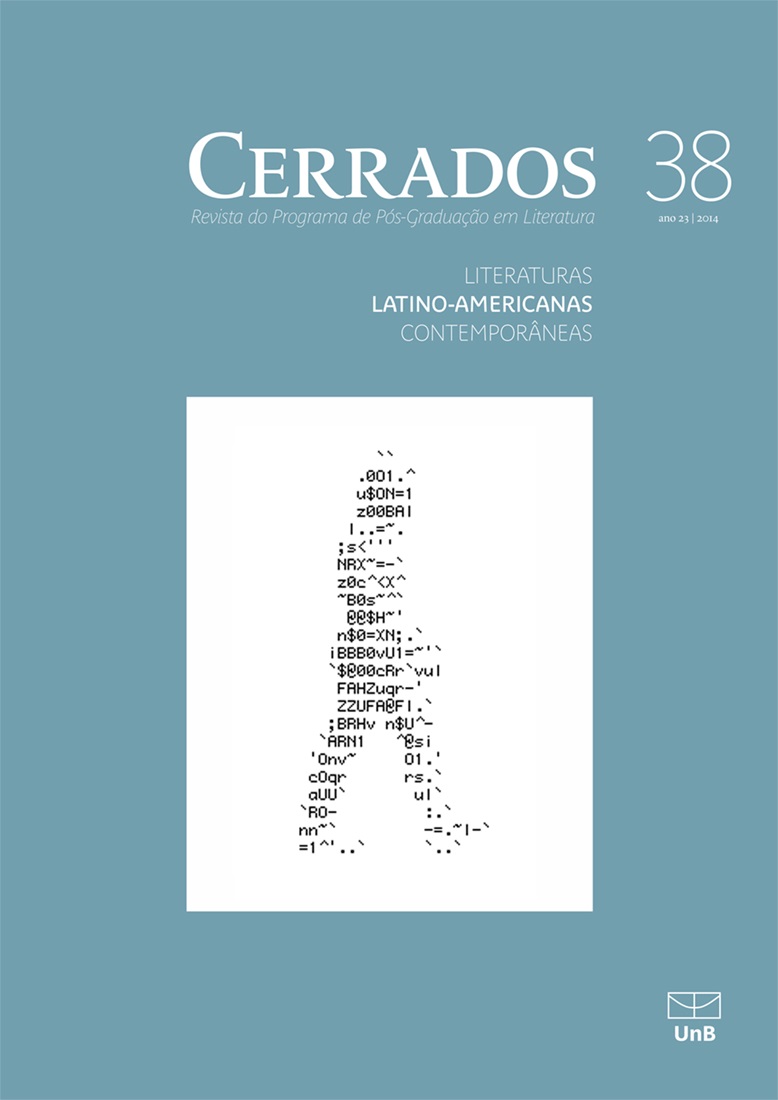El Sueño del Celta: The Fictionalized Irish Hero in New Historical Novel
Keywords:
Historical novel. El sueño del celta. Mario Vargas Llosa.Abstract
In 2010, Mario Vargas Llosa returned to the tradition of historical fiction with El sueño del celta, a novel that speaks with the history and fictionalizes the idealistic Irishman, Roger Casement. This article aims to analyze the novel by the perspective of historical fiction, resuming the theories of Lukács (1955) and Menton (1993), reflecting how Vargas Llosa returns to New Historical Novel and, in the level of language, how fiction and History intertwine
Downloads
References
ANDERSON, P. Trajetos de uma forma literária. In Novos estudos. São Paulo, nº 77, p. 205-220, mar. 2007
FREDMAN, N. O ponto de vista na ficção: o desenvolvimento de um conceito crítico. In Revista USP. São Paulo, nº 53, p. 167-182, março/maio 2002
HOBSBAWM, E. Era dos extremos: o breve século XX 1914-1991. São Paulo: Companhia das Letras, 2011 (publicado originalmente em 1995)
JAMESON, F. O romance histórico ainda é possível? In Novos estudos. São Paulo, nº 77, p. 185-203, mar. 2007
LLOSA, M. V. El sueño del celta. Buenos Aires: Alfaguara, 2010
__________ La guerra del fin del mundo. Buenos Aires, Alfaguara, 2008 (publicado originalmente em 1981)
LUKÁCS, G. O romance histórico. São Paulo: Boitempo, 2011 (publicado originalmente em alemão, em 1955)
MENTON, S. La nueva novela histórica de la América Latina: 1979-1992. México, Fondo de cultura económica, 1993
MITCHEL, A. Roger Casement no Brasil: a borracha, a Amazônia e o Mundo do Atlântico 1884-1916. São Paulo: Humanitas, 2011
WEINHARDT, M. O romance histórico na ficção brasileira recente. In CORREA, R. H. (Org.) Nem fruta nem flor. Londrina: Humanidades, 2006, p. 131-172
WELDT-BASSON, H. El sueño del celta: postcolonial Vargas Llosa. In WELDT-BASSON, H. (org.) Redefining Latin Historical American Fiction. Michigan: Michigan State University, 2013
Downloads
Published
How to Cite
Issue
Section
License
Proibida a reprodução parcial ou integral desta obra, por qualquer meio eletrônico, mecânico, inclusive por processo xerográfico, sem permissão expressa do editor (Lei n. 9.610 de 19/2/1998 )



